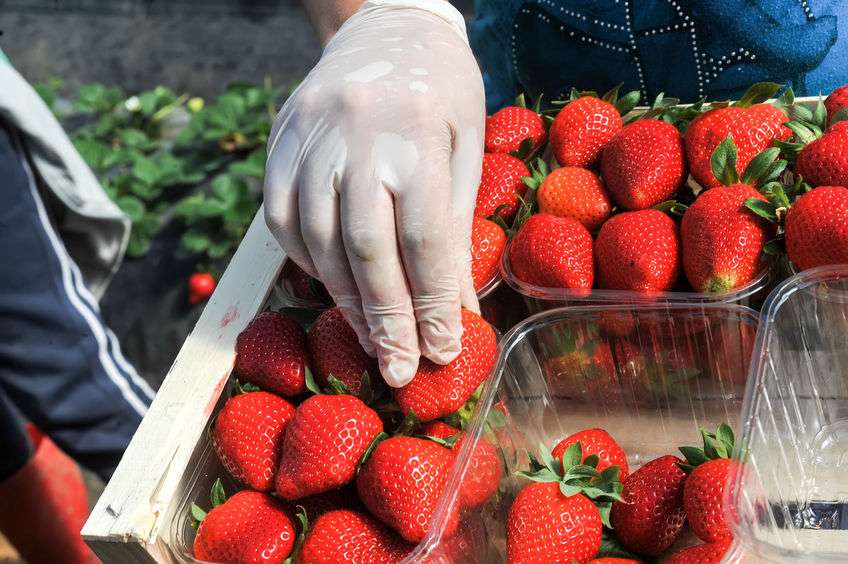
Young Brits have taken to the fields to fill in the shoes of a job usually done by EU migrant workers, the crop picker.
In a televised experiment for the BBC's Inside Out South West, the 18 to 23 year olds worked on Southern England Farms Ltd in Cornwall picking cabbages.
However, within the first hour, the Brits complained they were cold and had "frozen fingers". Hettie Burrows, a Cambridge graduate, needed to have time off to warm her freezing hands.
The 22-year-old said: "Honestly I was in so much pain, but I don’t quit. Like last year I ran two marathons. If I can do that, why can’t I pick cabbages?"
23-year-old Jennifer Brunt, who works in sales, said: "This is hard, my hands are too small and they’re cold and my nose is running."
'Not a chance'
The female volunteers also refused to agree to a make-up ban, because of the wet weather.
One volunteer said: "I’m sorry but I am not wearing no make-up, not a chance. I am going to be wearing make-up tomorrow."
18-year-old music production student Conor Stevens admitted he could not do two-days of crop picking, and admitted the volunteers were probably making the farm lose money.
At the end, the experiment showed that Eastern European workers picked nearly ten times more crops than the British workers did in the fourth hour of the challenge.
Bulgaria and Romania
Owner Greville Richards said he employs 500 crop pickers, the vast majority from Eastern Europe.
Mr Richards said: "Now we are sort of finding that we are [employing] Bulgarian and Romanian, purely because the Lithuanians and the Polish don’t want to come here because there’s nothing in it for them now with the way the exchange rate is."
In the face of a declining EU worker pool triggered after the Brexit vote, he said he would gladly recruit British workers.
The figures are starting to worrying the industry. The NFU’s labour provider’s survey reveals that there was a 29% shortfall in seasonal workers for horticulture businesses in September, raising the average shortfall for the year to 11%.
The survey also shows that the number of returning workers to farms, a critical source of the workforce, fell to 16%, its lowest level in 2017. The returnee rate had been as high as 65% in January 2017.
And according to the Deputy President of the NFU, food is "rotting in the fields", and yet the industry "see no action."
Another rural organisation, the CLA, said that reducing access to migrant labour for farming, horticulture and tourism jobs will have "devastating consequences" for the rural economy.
'Get on their bikes'
In the face of the migrant worker decline, prominent politicians have called for British people to fill roles vacated by EU workers after Brexit.
A Conservative MP has said young Brits should "get on their bikes" and take farming jobs to alleviate the shortage of migrant labour post-Brexit.
Ukip has also said British students could provide labour for fresh produce industry to help cut migration.
Prime Minister Theresa May has suggested a seasonal agricultural workers scheme could be reintroduced after Brexit.
